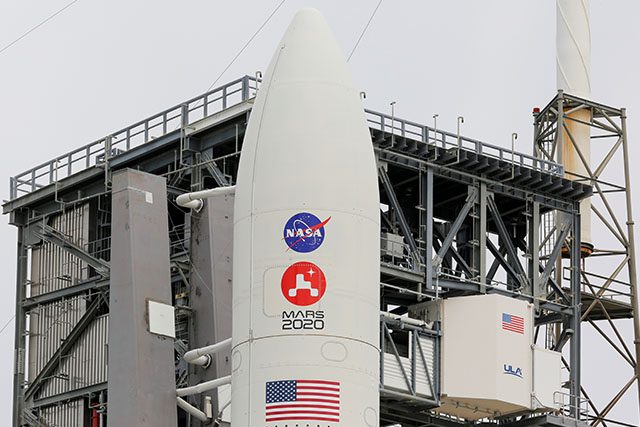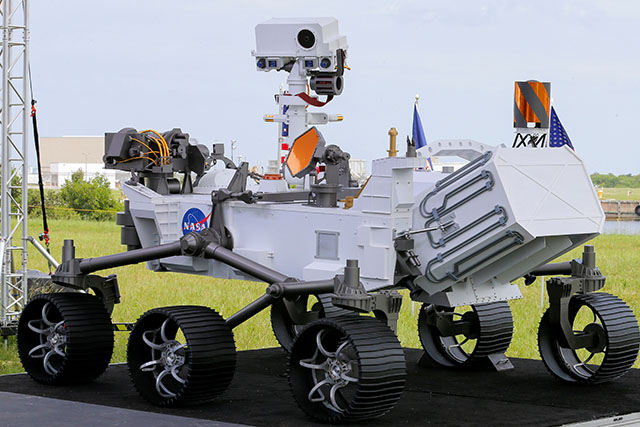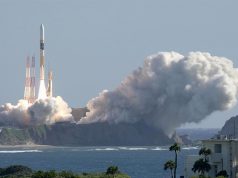
(Updated Feb. 19, 2021; 2:12 p.m.) Filipinos are set to “fly” to the Red Planet as the National Aeronautics and Space Administration will launch its Mars Perseverance rover tonight to explore signs of life, the planet’s geology and pave the way for its human exploration.
The next-generation rover will carry almost 11 million names of people who have signed up on NASA’s website and received their “boarding passes.” Their names will be carried in the historical flight via three silicon chips.
Philstar.com reported that the Philippines ranked 23rd in the names submitted for the launch, with 69,995 names set to join the space mission.
Those who have missed the chance to sign up for tonight’s mission can “join” in the next exploration in the mid-2020’s in which a yet-to-be-identified spacecraft will carry the names to Mars.
Perseverance rover will launch from the Space Launch Complex 41 at the Cape Canaveral Air Force Station in Florida, the United States at 7:50 p.m. in Philippine time.

It is expected to reach Mars in February 2021 and land at the base of the Jezero Crater which used to be a former lake 3.5 billion years ago and has been suspected of bearing evidence of potential past microbial life on the planet.
The new mission, according to NASA, aims to “search for signs that microbes might have lived on Mars long ago, collect soil samples to be returned to Earth on a future mission and pave the way for human exploration beyond the Moon.”
The rover will likewise conduct an experiment to convert elements of the carbon dioxide-rich Martian atmosphere to produce breathable oxygen for future astronauts.
Meanwhile, a hashtag was launched on Twitter in anticipation of the liftoff.
#CountdownToMars T-1! Tomorrow, our @NASAPersevere
rover launches to Mars, a journey of over 35 million miles!Once on Mars, @NASAPersevere will:
💦 Search for signs of habitability and life
⛏️ Collect rock and soil samples for study
👩🚀 Prepare for human exploration pic.twitter.com/pgRa3FnBEK— NASA Expeditions (@NASAExpeditions) July 29, 2020
As of Thursday afternoon, the hashtag “#CountdownToMars” is on the fourth spot of the Philippine trending list, where Filipinos shared their virtual boarding passes, as well as their commentaries on the space mission.
“I’m kinda tired of my life as an Earthling… so I’m gonna find a new place to stay in… Please adopt me!” jested another Twitter user with a series of laughing-with-tears emoji.
“Because Earth isn’t the home we used to know.. Bye lol. #CountdownToMars,” wrote another online user.
“Gusto ko nalang din mag join, literal na gusto ko nalang sumakay sa spacecraft, ayaw ko na sa PH,” commented another online user with a hand-over-mouth emoji.
A Twitter user said that it is already the “third time” he has sent his name to be included in the Mars exploration.
This will be the third time my name will be sent to Mars ❤️ #CountdownToMars
Go NASA! pic.twitter.com/VuS9rAUwdg— jc (@_jmcrz) July 30, 2020
Reuters reported that the United States “has plans to send astronauts to Mars in the 2030s under a program that envisions using a return to the moon as a testing platform for human missions before making the more ambitious crewed journey to Mars.”
Mars billions of years ago harbored flowing liquids on its surface which scientists thought were “branching streams, river valleys, basins, and deltas.”
The features suggested that it may have once a vast ocean that covered its northern hemisphere.
“Elsewhere, rainstorms soaked the landscape, lakes pooled, and rivers gushed, carving troughs into the terrain. It was also likely wrapped in a thick atmosphere capable of maintaining liquid water at Martian temperatures and pressures,” the National Geographic noted.
“Somewhere during Martian evolution, the planet went through a dramatic transformation, and a world that was once rather Earthlike became the dusty, dry husk we see today,” the report added.
The exploration of Mars enables scientists to learn about shifts in climate that can change the planet in its entire form. It also allows them to find out whether life was abundant in the past and if it still exists on the planet.









